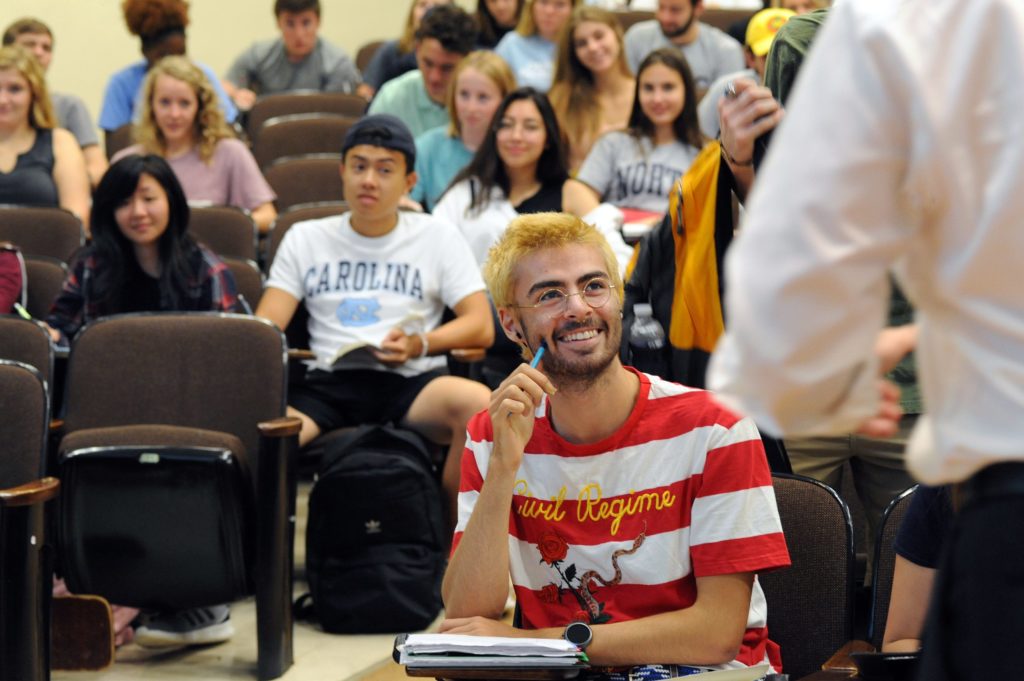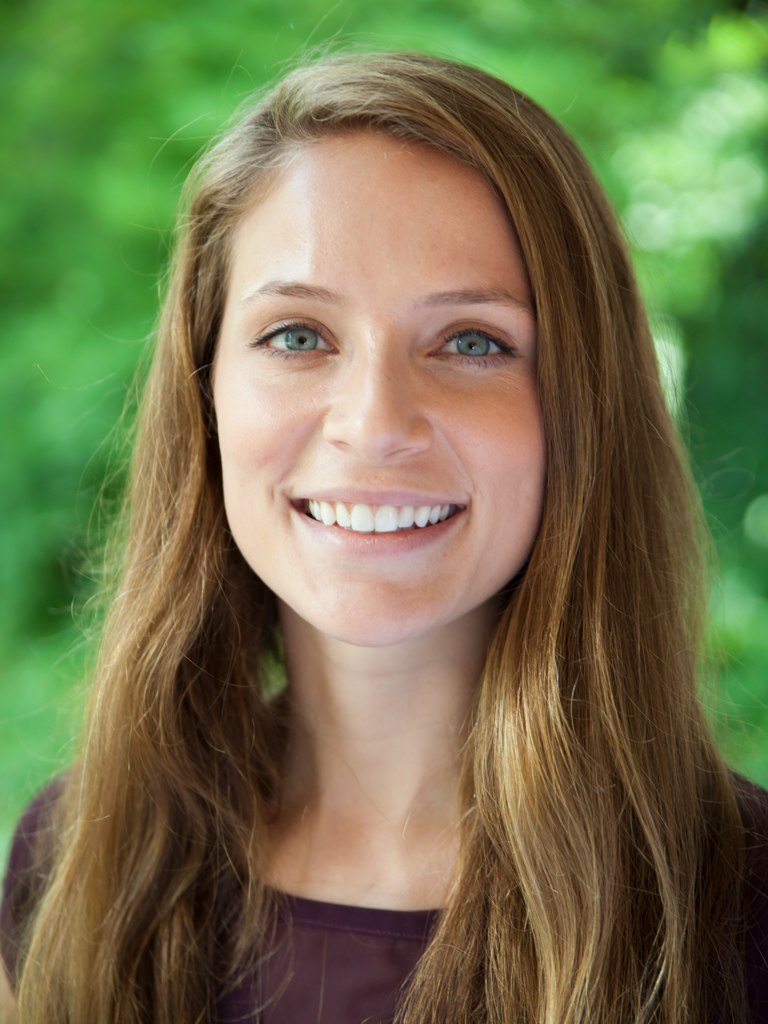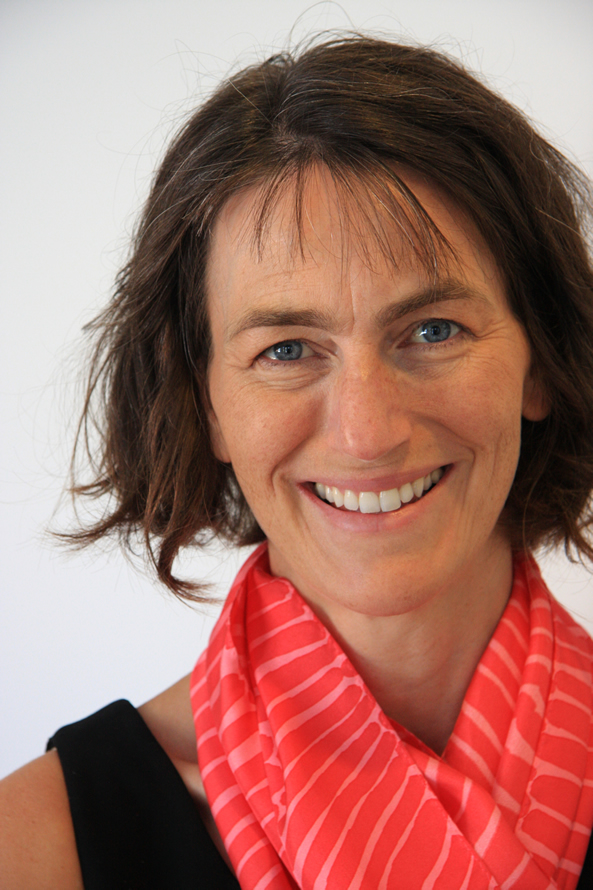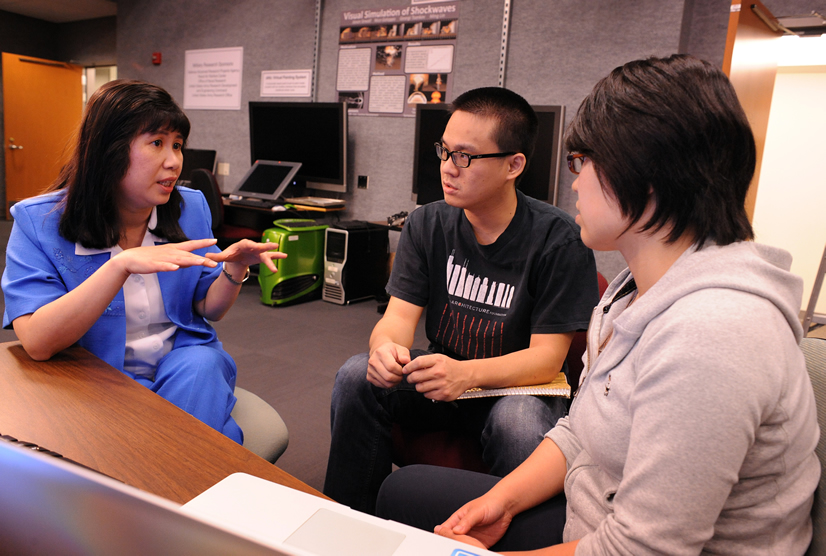
As part of “For All Kind: The Campaign for Carolina,” launched Oct. 6, the University of North Carolina at Chapel Hill will create the UNC Institute for Convergent Science (ICS). By embracing this emerging model for scientific research, Carolina aims to tackle the world’s biggest problems by fostering greater multi-disciplinary collaboration among researchers, students and entrepreneurs in an effort to speed the application of new discoveries, and the commercialization of technological breakthroughs and next-generation medical therapies.
“Carolina has a rich history of conducting research that transformed society and improved the lives of people in our state and around the globe,” said Chancellor Carol L. Folt. “We now take the next step into the future, and the UNC Institute for Convergent Science will be the heart of an enterprise that empowers proven convergent thinkers here and around the world with the tools and space they need to harness innovation and big ideas. Students will train in interdisciplinary approaches, research teams will collaborate across the spectrum of applications and we will speed the transition from discovery to real-world impact.”
Convergent science is at the core of an expanded “team-science” concept, where basic and applied scientists from many disciplines—from mathematics to physics to computer science to biology—pursue new discoveries alongside physicians, manufacturers and technology innovators. It unites scientists with entrepreneurs for a seamless and more timely transition from discovery to impact.
“With the Institute for Convergent Science, Carolina is rewriting the rules by encouraging faculty from a variety of disciplines to work together alongside end users such as physicians, manufacturers and technology innovators to solve complicated problems,” said College of Arts & Sciences Dean Kevin Guskiewicz. “An interdisciplinary approach brings fresh perspectives, as scientists pool their collective expertise and adapt techniques and approaches from one discipline to another. It’s synergistic thinking.”

DETAILS:
- The Institute for Convergent Science will empower convergent science across the University, providing collaborative and entrepreneurial research space, meeting space, offices for visiting entrepreneurs and scientists from partnering companies. It will become the new home for the new department of applied physical sciences.
- The institute is an important addition to, and the last phase of, the Carolina Physical Science Complex, which broke ground in 2004 and whose first buildings opened in 2007. With the creation of the ICS, the complex itself will provide an even wider range of dynamic, creative and collaborative approaches across the sciences.
- The institute will be a resource for scientist-entrepreneurs who seek to engage companies in their work or to start their own enterprises. It will also strengthen the preparedness of the talent pipeline by engaging existing and new undergraduate, graduate and postdoctoral training programs so that students learn to approach their own research with a “convergence” mindset.
- It will co-locate individual science laboratories with spaces for team science and collaboration, and include a state-of-the-art technology hub.
- The ICS aims to annually fund six Carolina faculty fellowships and six fellowships to visiting faculty partners, who will team up to tackle the greatest obstacles to translating nanotechnology, materials science and neuroscience technologies into practical applications. It also seeks to provide 12 to 14 emerging scholar fellowships for graduate students, interns and postdocs.
- The Institute also aims to fund faculty and graduate student research opportunities in Silicon Valley – “Carolina West.”
- Start-up costs for the ICS include hiring a director, associate director and support staff, as well as five new faculty per year – up to 25 new hires over five years – to build up the departments of applied physical sciences and biomedical engineering, along with related units.

IMPACT:
- The ICS is a signature initiative in the University’s the Campaign for Carolina and supports the core pillars of the University’s overarching Blueprint for Next— “Of the Public, for the Public” and “Innovation Made Fundamental” — which uphold Carolina’s commitment to grow and evolve while remaining rooted in its public service mission.
- BeAM (Be A Maker) — the name for UNC’s network of makerspaces — has already started a collaborative revolution on campus by injecting the excitement of designing and making physical objects into the lives of students and faculty across the arts and sciences using technologies like 3-D printing, electronics, wood- and metal working, and digital fabrication. The institute will allow the College of Arts & Sciences to expand the BeAM network.
- Carolina’s Virtual Lung Project is a key example of the benefits of a convergent science approach. Seeking a better way to treat cystic fibrosis, a team of 15 UNC-Chapel Hill mathematicians, computer scientists, physicists, chemists, biomedical engineers and health sciences faculty came together to study the debilitating lung disease. This led to the development of drug therapies administered via inhalation and a deeper understanding of how gene-based defense mechanisms function. Having a variety of experts at the table enabled Carolina to create a different approach to understanding treatment issues that health scientists had not yet addressed.
Read a Carolina Arts & Sciences fall 2017 magazine story, “Convergent science gains momentum,” and learn about nanocomposites research by UNC professors Theo Dingemans, Greg Forest, Daphne Klotsa and Peter Mucha.




